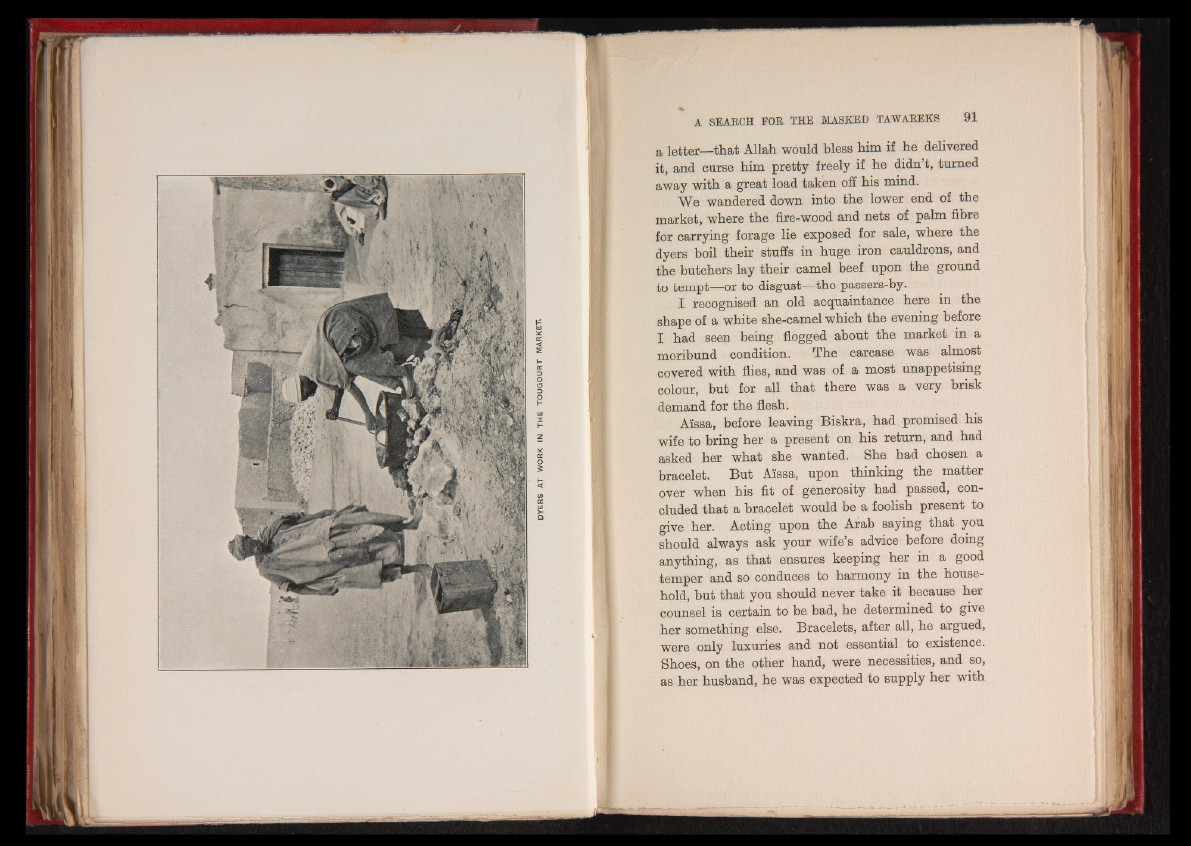
DYERS AT WORK IN THE TOUGOURT MARKET
a letter—that Allah would bless him if he delivered
it, and curse him pretty freely if he didn’t, turned
away with a great load taken off his mind.
We wandered down into the lower end of the
market, where the fire-wood and nets of palm fibre
for carrying forage lie exposed for sale, where the
dyers boil their stuffs in huge iron cauldrons, and
the butchers lay their camel beef upon the ground
to tempt—or to disgust—the passers-by.
I recognised an old acquaintance here in the
shape of a white she-camel which the evening before
I had seen being flogged about the market in a
moribund condition. The carcase was almost
covered with flies, and was of a most unappetising
colour, but for all that there was a very brisk
demand for the flesh.
Aissa, before leaving Biskra, had promised his
wife to bring her a present on his return, and had
asked her what she wanted. She had chosen a
bracelet. But Aissa, upon thinking the matter
over when his fit of generosity had passed, concluded
that a bracelet would be a foolish present to
give her. Acting upon the Arab saying that you
should always ask your wife’s advice before doing
anything,, as that ensures keeping her in a good
temper and so conduces to harmony in the household,
but that you should never take it because her
counsel is certain to be bad, he determined to give
her something else. Bracelets, after all, he argued,
were only luxuries and not essential to existence.
Shoes, on the other hand, were necessities, and so,
as her husband, he was expected to supply her with